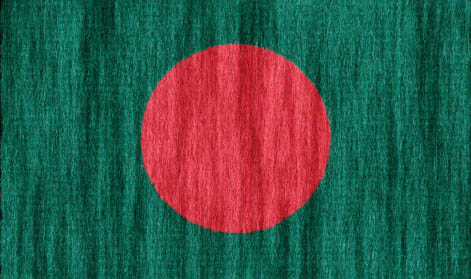By Mizan Rahman
Dhaka
A 2015 US report has found Bangladeshi women who migrate for domestic work particularly vulnerable to abuse.
This year’s Trafficking in Persons (TIP) Report prepared by the US State Department, released by the US embassy in Dhaka, said, “Some (Bangladeshi) women and children are subjected to commercial sexual exploitation and forced labour in India and Pakistan”.
Some NGOs allege instances of officials on both sides of the India-Bangladesh border allowing human traffickers to operate, said the report, which places Bangladesh at Tier II level along with some 90 countries.
The governments of these Tier II countries do not fully comply with minimum standards but are making significant efforts to bring
themselves into compliance.
The report, however, said the governments of Bangladesh and India coordinated the rescue and repatriation of child trafficking victims through established standard procedures.
About recruiting agencies in Bangladesh, it said the recruiting agencies charge excessive amount of money while sending people abroad.
“Some recruitment agencies and agents also commit recruitment fraud, including contract switching, in which they promise one type of job and conditions, but then change the job, employer, conditions, or salary after
arrival.”
The report cited the example of Greece where three Greek foremen were accused of shooting into a crowd of some 200 Bangladeshi migrant workers, but a Greek court acquitted the farm owner and his lead foreman
in 2014.
More than 320,000 foreign domestic workers from Indonesia, the Philippines, Myanmar and Bangladesh work in Hong Kong and some become victims of forced labour in the private homes in which they are employed.
A large number of women and girls from Nepal, Afghanistan, Bangladesh and Eurasia are also subjected to sex trafficking in India, the
report said.
Some out-of-status domestic workers from Indonesia, the Philippines, Bangladesh, and Sri Lanka are also reportedly forced into prostitution after fleeing their
employers in Jordan.
In February 2015, the media reported a Russian trafficking network brought hundreds of Bangladeshi nationals via Libya to Italy, where they subsequently endured forced
labour.
Mauritius’ manufacturing and construction sectors employ approximately 37,000 foreign migrant workers from Bangladesh, China, Sri Lanka and Madagascar, some of whom are subjected to forced labour.
Pakistan is a destination country for men, women, and children subjected to forced labour – particularly from Bangladesh, Afghanistan, and Sri Lanka.
Romania is a destination country for a limited number of foreign trafficking victims, including sex trafficking victims from Moldova and Poland and labour trafficking victims from Bangladesh and Serbia.
South African government and NGOs reported an increase in Bangladeshis and Pakistanis subjected to bonded labour in businesses owned by their nationals.
Thailand is also a transit country for victims from Bangladesh, China, Vietnam, and Myanmar subjected to sex trafficking or forced labour in countries such as Malaysia, Indonesia, Singapore, Russia, South Korea, the United States, and countries in Western Europe.

